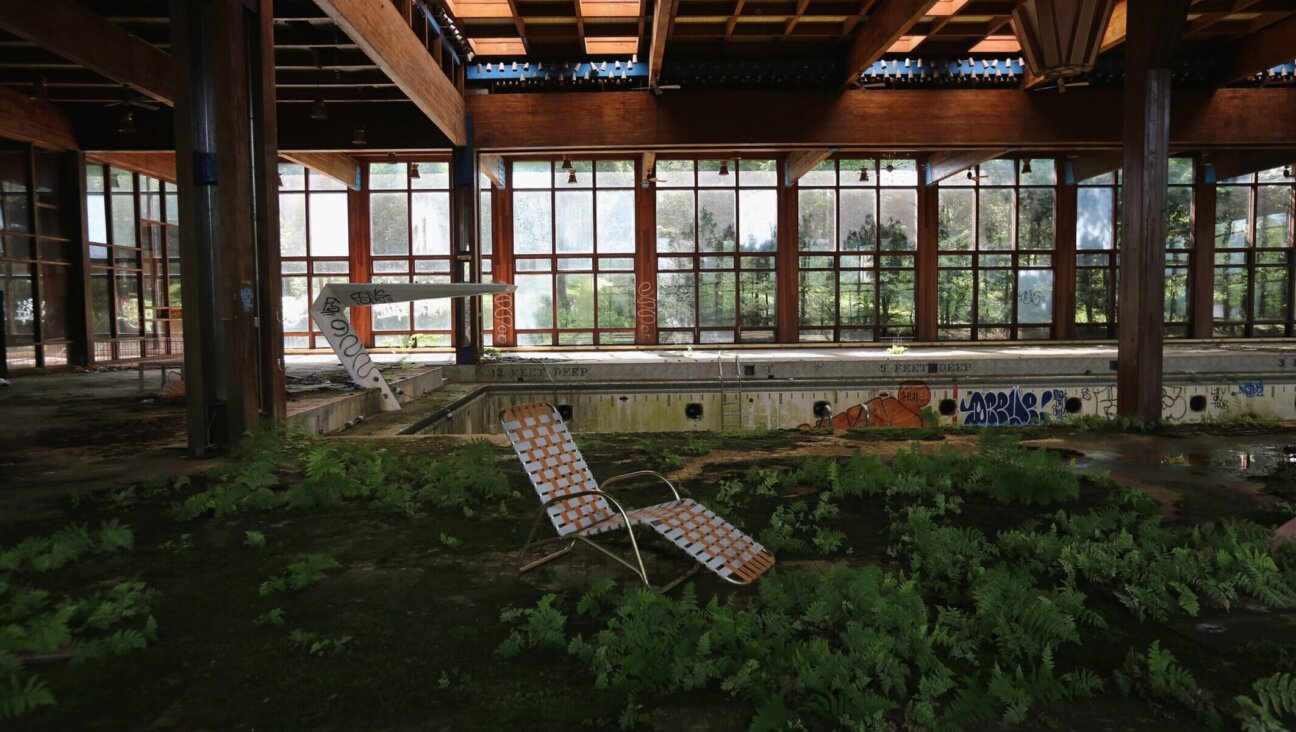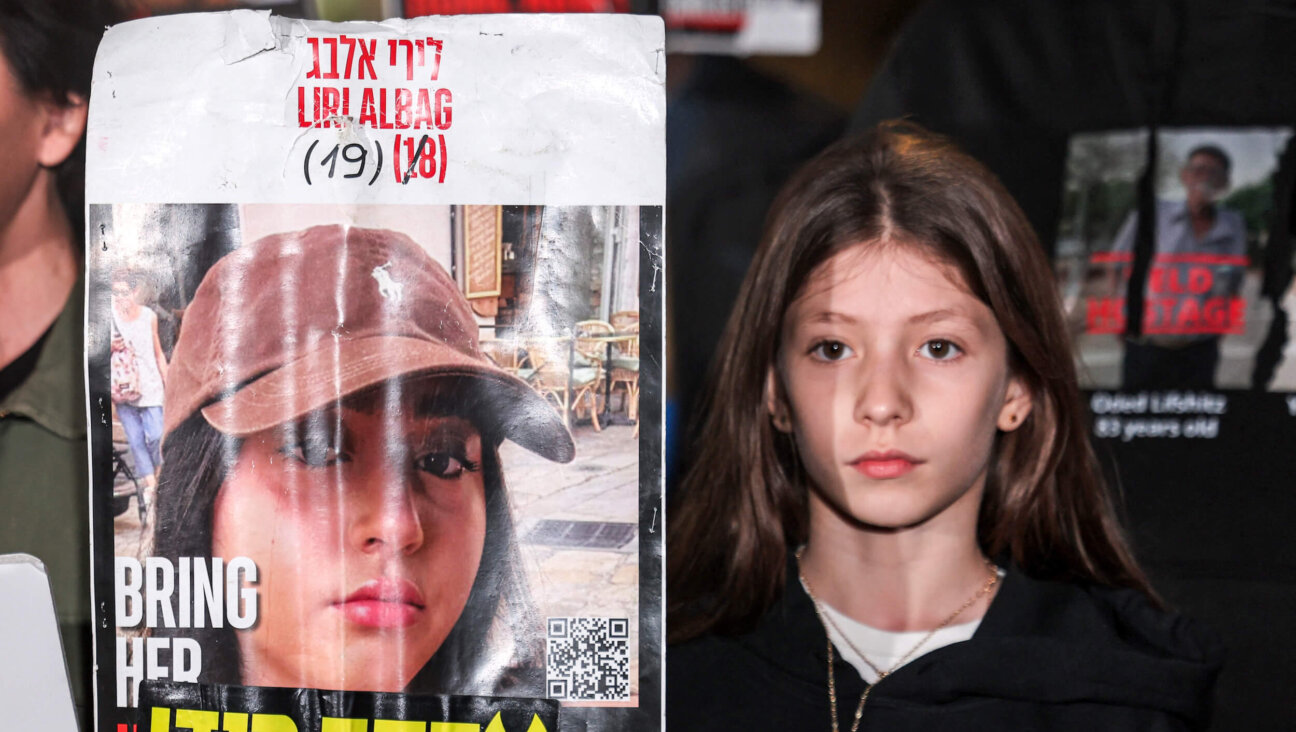‘Feminists of Zion’ Scapegoat Orthodox Jews

Image by getty images
A lengthy piece in the New Republic asserts — or, more accurately, hopes — that “an unlikely alliance between Orthodox and progressive women will save Israel from fundamentalism.” The latter word, of course, is intended to refer to traditional Orthodox Judaism.
Heavy on anecdotes about Haredi crazies harassing sympathetic women, the piece, titled “The Feminists of Zion,” details how demographic changes in Israel have brought the decades-old peaceful co-existence of secular and Haredi Jews to something of a head. The “once-tiny minority” of Haredim “now comprises more than 10% of the population,” it informs. And it warns that “as their numbers have increased, so has their sway over political and civil life.”
That sway has resulted in things like “an increase in modesty signs on public boulevards and gender-segregated sidewalks in Haredi neighborhoods,” not to mention “gender-separated office hours in government-funded medical clinics and de facto gender segregation on publicly subsidized buses,” among other affronts.
In 19th-century America, there was much anxiety about the “Yellow Peril,” the pernicious effect that Chinese immigrants were imagined to have on the culture of the union.
During the Second World War, the phrase was applied to Japanese-Americans. The New Republic writers, Haaretz’s Allison Kaplan Sommer and Slate’s Dahlia Lithwick, seem to perceive what they might call (although they don’t) a “Black Peril” in Israel. And the white knight on the horizon who might vanquish the monster is the Jewish state’s “fighting feminist spirit.”
That spirit, the writers say, is championed by the Israeli Reform movement (and its legal arm, the Israel Religious Action Center, or IRAC) and by “modern-Orthodox” women in Israel who are fed up with Haredim. One group of such Orthodox feminists, Kolech, the article notes, has begun to work with IRAC on “a host of issues.”
The “highest profile example of the renewed fighting feminist spirit in Israel,” the writers assert, may be “the stunning success this year of Women of the Wall,” (WOW), the group of feminists that has made a point of gathering monthly at the Western Wall, or Kotel Maaravi, to hold vocal services while wearing religious garb and items traditionally worn by men, which offends the Haredi men and women who regularly pray at the site around the clock.
Sommer and Lithwick, hopelessly hopeful, posit the possibility that “the rising tide of feminist activism… will ultimately engage Haredi women as well.” Evidence for the unlikelihood of such cross-cultural contagiousness, however, lies no farther than the Kotel plaza itself.
For the past several Jewish Rosh Chodesh, or “new month,” morning prayer services, when WOW holds its untraditional services, the group and its supporters were outnumbered on the order of 1:100 by Haredi women, young and old, who quietly prayed in a passive but striking assertion of their own convictions, those of the millennia-old Jewish religious tradition. (Unsurprisingly, the media, dutifully summoned by WOW’s leaders to boost its public profile among non-Orthodox American Jews, focused on handfuls of idiotic, inexcusable and uncouth young men who jeered and even threw things at the successful provocateurs.)
The many thousands of women quietly praying at the Wall, while they made no sound, spoke loudly. About who truly cares about the Kotel and the Holy Temple that once stood on its other side, and about true empowerment of women. They know the inestimable value of their roles as wives and mothers and future mothers, as teachers of their children and of other Jews, as women like those at the time of the exodus from Egypt, the “righteous women” in whose merit, the Talmud teaches, the Jewish People were able to leave the land of their enslavement.
So yes, as the article states, there is indeed a challenge to Jewish “fundamentalism” – the Judaism of the ages – in Israel these days. The challengers are the American movement called Reform and its small but militant Israeli counterpart, comprised of American immigrants and a smattering of “progressive” native women. And the challengers have indeed made some headway in Israel’s secular courts, and will likely make further gains as they file new lawsuits against Haredim and their practices.
What is lost on many observers, though, is the fact that Israel’s Haredim seek only to maintain their fealty to the Jewish religious tradition that, in the end, is the heritage of all Jews. They have made no moves to change the religious status quo that has been in effect in Israel since its inception. The lawsuits and public campaigns have all been initiated by IRAC and its allies.
And so, while Israel’s secular courts, perhaps with subconscious envy of (or conscious aiming at) American-style religion/state separation, may well look favorably on the demands of the self-styled white knights, one thing is certain: those “progressives” are the antagonists here.
And by mischaracterizing Haredim as intent on trying to change other Israelis’ lives, by painting religious Jews as a sinister, growing Black Peril that must be arrested before it is too late, the modern-day crusaders miss a terrible irony: They are engaging in the very same sort of vilification that has been, at times similarly successfully, employed over centuries by enemies of all Jews.
Avi Shafran, who serves as Agudath Israel of America’s director of public affairs, writes a weekly personal column at rabbiavishafran.com
A message from our Publisher & CEO Rachel Fishman Feddersen

I hope you appreciated this article. Before you go, I’d like to ask you to please support the Forward’s award-winning, nonprofit journalism so that we can be prepared for whatever news 2025 brings.
At a time when other newsrooms are closing or cutting back, the Forward has removed its paywall and invested additional resources to report on the ground from Israel and around the U.S. on the impact of the war, rising antisemitism and polarized discourse.
Readers like you make it all possible. Support our work by becoming a Forward Member and connect with our journalism and your community.
— Rachel Fishman Feddersen, Publisher and CEO






















